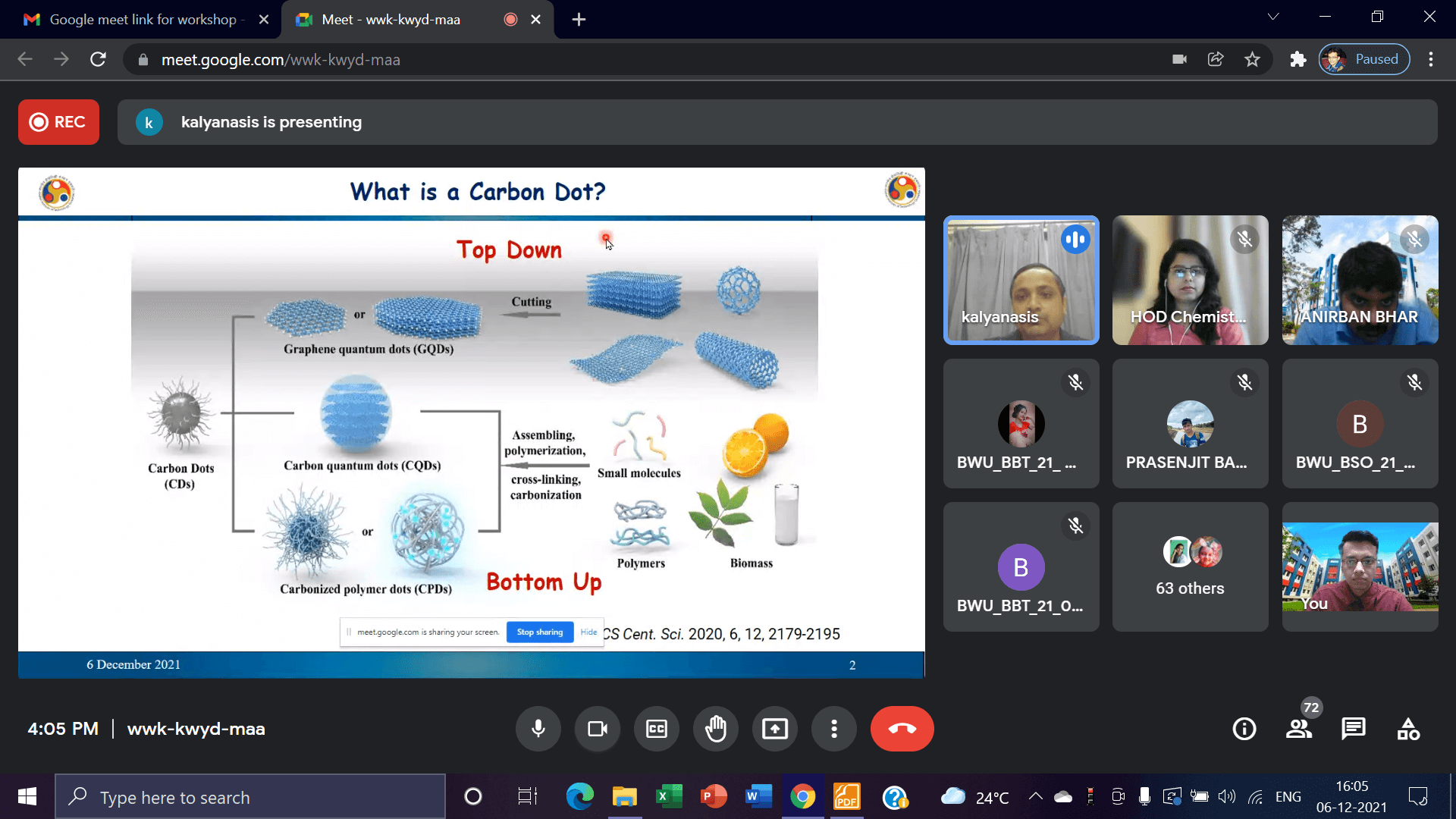
Online Workshop | Fluorescent Carbon Dots

A workshop on “Fluorescent Carbon Dots for Sensing and Imaging Applications” was organized on 6th December, 2021 at 4 PM by the Department of Chemistry. The speaker, Dr. Kalyanasis Sahu (Professor, Department of Chemistry, Indian Institute of Technology Guwahati) started his presentation with the preliminary idea of carbon dots. He also provided detailed information about the synthetic strategy of fluorescent carbon dots. Different examples of synthesized carbon dots were also discussed which were employed for the fluorometric detection of different biologically and environmentally relevant analytes, such as bilirubin, Vitamin-B12, lead metal ions and hypochlorous acid. Furthermore, in this session all the aspects of fluorescent carbon dots and their potential applications in different fields were also discussed.
As a new class of fluorescent carbon nanomaterials, carbon dots possess the attractive properties of high stability, good conductivity, low toxicity, environmental friendliness, simple synthetic routes as well as comparable optical properties to quantum dots. Carbon dots have been extensively investigated especially due to their strong and tunable fluorescence emission properties, which enable their applications in biomedicine, optronics, catalysis, and sensing.
The presentation was followed by a Q&A session which was marked by lively discussion. Several questions were asked by the participants such as: “ Are carbon nanotube and carbon dots the same thing?”, “How we can make carbon dots?”, “Why does fluorescent intensity decrease with the addition of bilirubin solution?”, “Can we use carbon dots for fluorescence in-situ hybridization (FISH) process?”, “Is there any separation procedure to separate GQD and carbon dots?”, “Why different mechanism was observed in case of bilirubin and Vitamin-B12 sensing?”
'It was an eye-opening presentation by the speaker which we all thoroughly enjoyed,' said Dr. Arpita Sarkar, the head of the department.






